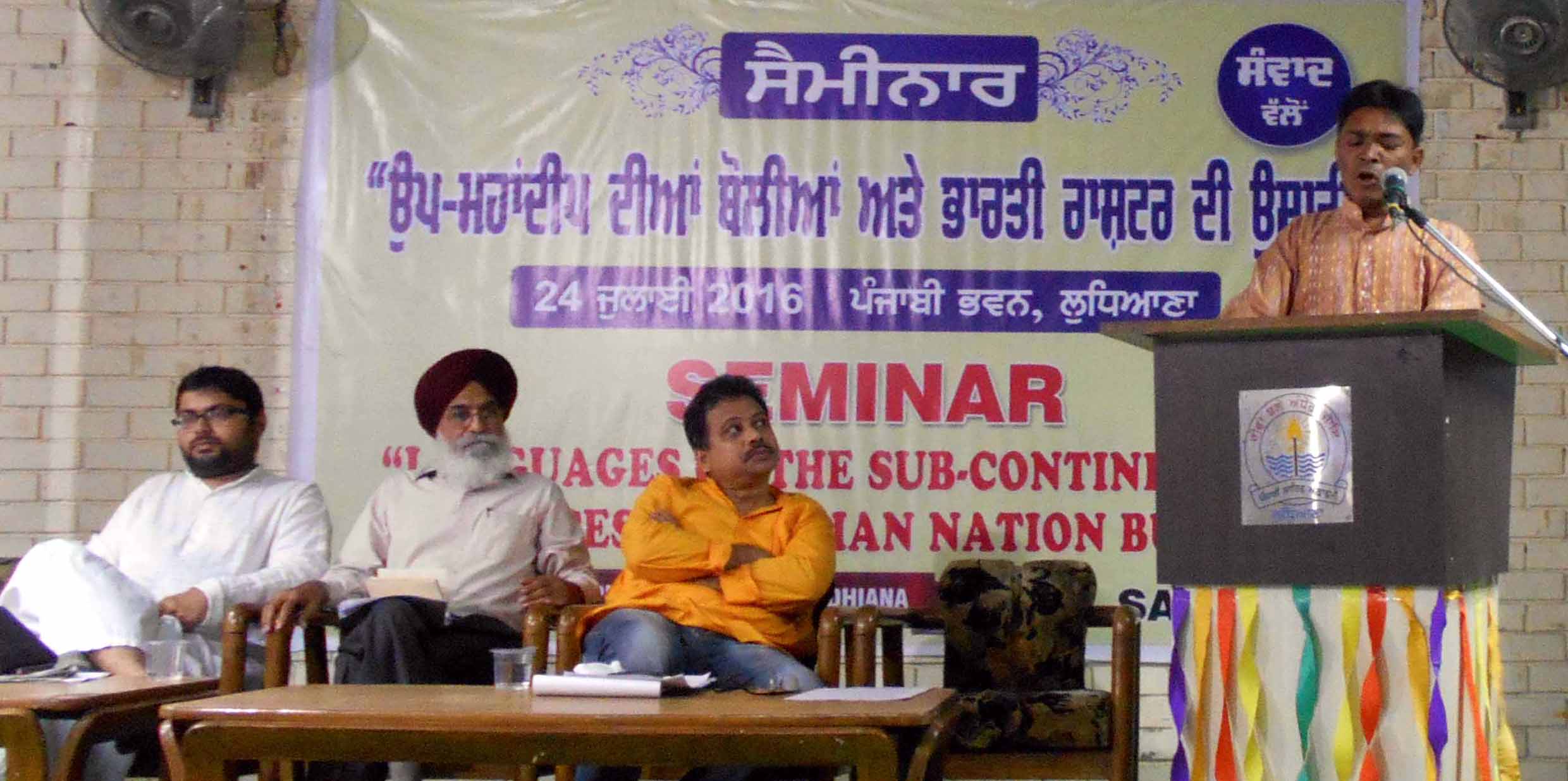Recognization for Kosali has been reiterated at Punjabi Bhawan, Ludhiana. Participating in the seminar; organized by Samvad, Ludhiana on the topic “LANGUAGES OF THE SUB-CONTINENT AND THE PROCESS OF INDIAN NATION BUILDING” on July 24th; noted Kosali language activist and author, Saket Sreebhushan Sahu presented his paper, “Kosali Language and its Relations with State and Central Politics.” He says, “Languages like Bodo, Dogri etc have lesser speakers than Kosali at present. The literature of Kosali has also evolved and developed to compete with the contemporary literatures. Kosali fulfills all criteria to be included in the 8th Schedule of the Indian Constitution. The story of inclusion of Bodo is interesting and a similar situation may occur in future for Kosali if Odisha government will keep widening the gap of regional disparities and will not fulfill demands of Kosali.”
“Despite all the adversary circumstances the Kosali language movement is inching. It is getting support from different corners. Regularly activities are going on in the grass-root level as well as in other platforms.”
“It would be prudence on the part of Indian government as well as different state governments being flexible in recognizing the complexity of linguistic diversity in India by recognizing all existing languages. A language is said to be carrier of a culture and region. A language is the insignia and identity of a race. So let all languages get their due recognizations.”
In the first session, other speakers were Dr Deepak Pawar, Assistant Professor, Department of Civics and Politics, University of Mumbai and Marathi language activist spoke on, “Marathi Consciousness- Maharstrian Identity and the Challenges of the Coexistence of Linguistic and Multilingual Nationalism”. Dr Garga Chatarjee, Assistant Professor at Indian Statistical Institute and Bengali language activist spoke on “The Linguistic Question in Bengal: The Past and the Present.” He says, All languages in the Indian Union have equal rights. If any language is preferentially promoted, it is anti-democratic and is same as cultural genocide. The session was chaired by eminent Punjabi poet Padmasree Surjit Paatar. The key note address was presented by Bhia Mandhir Singh.
The second session was chaired by Dr Joga Singh, in his presidential remarks emphasized the need for education in mother tongue. He cited data from education, science & technology, international trade and commerce in support of his view. He also put very strongly that India is a multinational country and only a genuinely federal set up can keep India united. who stressed on mother tongue education in primary level.
The other speakers in the session were, Senthil Nathan, Federal Co-ordinator, CLEAR, presented “Language as a Human Capital for Building a Multinational and Inclusive Federal India”. Dr Sikander Singh presented his paper, “Emergence of Hindi and its Impact on Other Languages of the Sub-Continent”. Dr Kamaljeet Singh presented, “Philosophy of Language and Language of Punjabi Criticism”. Dr Sewak Singh presented, “Hindi and Punjabi: Sociolinguistic Relations”.



